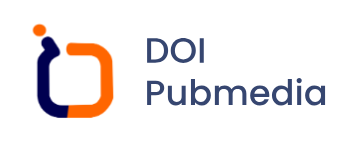The Influence of Employee Performance Quality on the Quality of Probolinggo City's 112 Emergency Service
DOI:
https://doi.org/10.69812/ijsps.v2i2.140Keywords:
Service Quality, Employee Performance, Emergency ResponseAbstract
Public administration emphasizes the dual role of government in regulation and service, with public services serving as a central indicator of good governance. In the context of emergency response, the quality of employee performance becomes crucial for ensuring effective service delivery. This study aims to analyze the influence of employee performance quality on the quality of the 112 emergency call service in Probolinggo City, Indonesia. Using a quantitative descriptive approach, data were collected through questionnaires, observations, and documentation from 100 respondents comprising government officials, academics, NGOs, and community leaders. The research employed Partial Least Squares (PLS) analysis to examine the causal relationship between employee performance quality and service quality dimensions, including reliability, responsiveness, assurance, tangibility, and empathy. The results demonstrate that employee performance quality has a significant and direct impact on the effectiveness of emergency services, with a path coefficient of 0.759, a p-value of 0.000, and a t-statistic of 1.690, confirming the proposed hypothesis. These findings highlight that improved employee capabilities, work processes, and enthusiasm positively enhance public trust and satisfaction in emergency handling. The study concludes that strengthening employee performance is a critical determinant for improving service quality in public emergency systems, supporting the broader goal of good governance and effective crisis management in Probolinggo City.
Downloads
References
Agustin, F. O., Handoko, V. R., & Wahyudi, E. (2024). Strategi Kinerja Pegawai Dalam Meningkatkan Kualitas Pelayanan Publik Di Kantor Kelurahan Dukuh Menanggal Kota Surabaya. Praja Observer: Jurnal Penelitian Administrasi Publik, 4(2).
Ananda, R. F., Rosyidi, B., & Zetra, A. (2021). Pengaruh Implementasi Kebijakan Peraturan Daerah Nomor 8 Tahun 2016 Terhadap Peningkatan Kualitas Pelayanan Publik Pada Dinas Kependudukan Dan Pencatatan Sipil Kabupaten Pasaman Barat Tahun 2019-2020. Jurnal Niara, 14(1), 149–160. https://doi.org/10.31849/niara.v14i1.5978
Bakri, A., Kadir, H. A., & Awaludin. (2022). Analisis Efektivitas Kerja Aparatur Sipil Negara pada Dinas Pekerjaan Umum dan Penataan Ruang Kabupaten Pasangkayu. Jurnal Kolaboratif Sains, 5(2).
Fitria, N. J. L. (2024). Pengukuran Kebijakan Layanan Nomor Tunggal Panggilan Darurat 112 Menuju Kebijakan Berkualitas. Jurnal Kuat: Keuangan Umum Dan Akuntansi Terapan, 6(2).
Handayani, N., Nurmayanti, D. R., & Nugroho, R. (2021). Implementasi Kebijakan Pelayanan Administrasi Terpadu Kecamatan (PATEN) Di Kecamatan Kalijati Kabupaten Subang Provinsi Jawa Barat. Jurnal Kebijakan Pemerintah, 4(1), 32–40.
Indrastuti, S., Suryani, L., & Radiyah. (2016). Pengaruh disiplin kerja terhadap kinerja aparatur sipil negara (asn) dinas pendidikan dan kebudayaan kabupaten kampar. Jurnal Ekonomi KIAT, 27(1), 1–7. https://jurnal.untan.ac.id/index.php/ejmfe/article/view/33047
Islamiyah, A. N., Alyas, & Parawu, H. E. (2021). Pengaruh Kinerja Pegawai Terhadap Kualitas Pelayanan Publik Di Kantor Dinas Tenaga Kerja Dan Transmigrasi Kabupaten Gowa. Journal Unismuh, 2(5).
Kushartiningsih, R., & Riharjo, I. B. (2021). Pengaruh Akuntabilitas, Transparansi Dan Pengawasan Terhadap Kinerja Pelayanan Publik. Jurnal Ilmu Dan Riset Akuntansi, 10(3).
Marwiyah, S., Busthomi, A. N., & Fitria, N. J. L. (2023). Urgensi Analisis Berbasis Bukti Dalam Indeks Kualitas Kebijakan Emergency Call 112 Kota Probolinggo. Sosiohumaniora: Jurnal Ilmiah Ilmu Sosial Dan Humaniora, 9(1).
Nawi, R. (2015). Pengaruh Kebijakan Publik terhadap Kualitas Pelayanan, penguatan Kelembagaan dan Kinerja Organisasi Pemerintahan. Pleno Jure, 4(5), 42–55. https://doi.org/10.37541/plenojure.v4i5.25
Oktarina, E., Deshaini, L., & Sugianto, B. (2021). Aspek Hukum Dalam Pelaksanaan Administrasi Publik Di Indonesia. Lex Librum: Jurnal Ilmu Hukum, 7(2).
Palangda, L., & Dame, J. M. (2020). Penerapan Prinsip Good Governance Terhadap Kualitas Pelayanan Publik. PUBLIC POLICY (Jurnal Aplikasi Kebijakan Publik & Bisnis), 1(2), 273–287. https://doi.org/10.51135/publicpolicy.v1.i2.p273-287
Parmanto, A. L., & Rahmadanik, D. (2022). Kualitas Pelayanan Publik Bidang Administrasi Kependudukan Di Kelurahan Bongkaran. Praja Observer: Jurnal Penelitian Administrasi Publik, 2(4).
Puput, L. W. (2015). Pengaruh Kualitas Kerja Pegawai Terhadap Kualitas Pelayanan Publik Di Kantor Pelayanan Pajak Daerah Provinsi Kepulauan Riau Samsat Tanjungpinang. In Universitas Maritim Raja Ali Haji. Universitas Maritim Raja Ali Haji.
Putra, T. D., & Prayoga, P. R. (2022). Implementasi Program Jemput Bola Sebagai Sarana Meningkatkan Cakupan Kepemilikan Kartu Identitas Anak (KIA) Di Kota Surakarta. EVOKASI: Jurnal Kajian Administrasi Dan Sosial Terapan, 1(2). https://doi.org/10.20961/evokasi.v1i2.492
Saguni, D. S., Widyawati, & Djabbari, M. H. (2023). Kinerja Pegawai dalam Meningkatan Kualitas Pelayanan Puskemas. Jurnal Administrasi Publik, 19(1).
Sugiyono. (2019). Metode Penelitian Kuantitatif Kualitatif dan R&D. Alfabeta.
Sutojo, A. (2015). Pengaruh pelaksanaan kebijakan atau aturan terhadap pelayanan sektor publik di kelurahan purwodadi kecamatan arga makmur kabupaten bengkulu utara. Mimbar: Jurnal Penelitian Sosial Dan Politik, 4(2), 1–11.
Widayat, W. (2022). Pengelolaan Pegawai Honorer Pemerintah Daerah Daerah Istimewa Yogyakarta. Jurnal Politik Dan Pemerintahan Daerah, 4(2), 215–222. https://doi.org/10.36355/jppd.v4i2.47
Zuliah, A., & Pulungan, M. A. (2020). Pelayanan Publik Dalam Kajian Hukum Administrasi Negara Dan Hak Asasi Manusia. Law Jurnal, 1(1), 32–42. https://doi.org/10.46576/lj.v1i1.786
Downloads
Published
How to Cite
Issue
Section
License
Copyright (c) 2025 Nurul Jannah Lailatul Fitria, Shanty Bunga Adinda, Ferdy Aprilyandi

This work is licensed under a Creative Commons Attribution-ShareAlike 4.0 International License.
You are free to:
- Share — copy and redistribute the material in any medium or format for any purpose, even commercially.
- Adapt — remix, transform, and build upon the material for any purpose, even commercially.
- The licensor cannot revoke these freedoms as long as you follow the license terms.
Under the following terms:
- Attribution — You must give appropriate credit, provide a link to the license, and indicate if changes were made . You may do so in any reasonable manner, but not in any way that suggests the licensor endorses you or your use.
- ShareAlike — If you remix, transform, or build upon the material, you must distribute your contributions under the same license as the original.
- No additional restrictions — You may not apply legal terms or technological measures that legally restrict others from doing anything the license permits.













